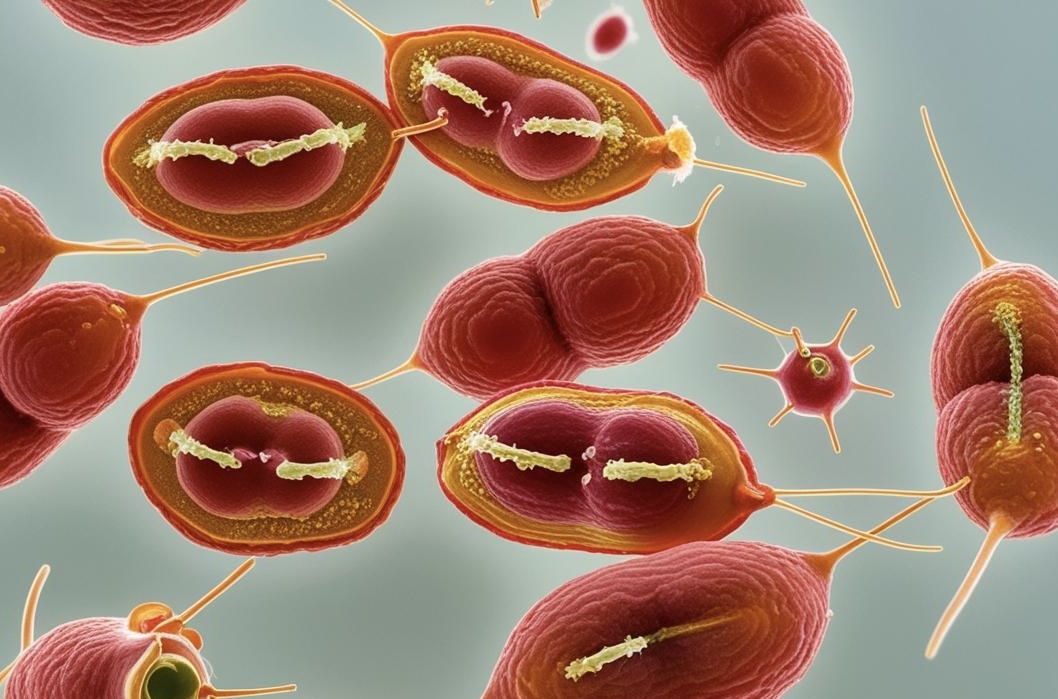
For the longest time, I felt bloated, tired, foggy, and just generally off. No matter how “healthy” I ate, something wasn’t right. My cravings for sugar were intense, my skin would randomly break out, and I was constantly fighting fatigue and brain fog. After endless trial and error, I finally discovered the culprit—Candida overgrowth.
If you’re feeling stuck in a cycle of strange symptoms that just won’t go away, you might be dealing with Candida, too. In this post, I’m sharing my personal experience with Candida overgrowth, the surprising ways it showed up in my life, and the natural remedies and dietary changes—including an unexpected fatty acid called undecylenic acid—that helped me reclaim my health.
Candida is a type of yeast that’s naturally present in the body, particularly in the gut. It’s not inherently bad—until it grows out of control. Stress, antibiotics, high-sugar diets, and hormonal imbalances can all set the stage for Candida to take over.
For me, it didn’t start with one obvious symptom. Instead, it crept in slowly:
At first, I thought I had a food sensitivity—or maybe I was just stressed. But when these symptoms persisted, I knew something deeper was at play.
When I learned about Candida, it all clicked. It feeds on sugar and carbs, so every time I gave in to my cravings, I was unintentionally feeding the problem. That’s when I decided to make a change—and it started with cutting off Candida’s food supply and adding in some powerful antifungal supplements.
While researching natural antifungals, I stumbled upon undecylenic acid, and it ended up being a game-changer in my recovery.
What is Undecylenic Acid?
Undecylenic acid is a fatty acid derived from castor oil that has antifungal and antimicrobial properties. It works by breaking down the cell membranes of Candida, effectively killing it and preventing it from spreading. It’s even recognized by the FDA as safe for antifungal use.
Why It Works:
How I Used It:
I took 500–1000 mg daily of undecylenic acid capsules as part of my antifungal protocol. Within a few weeks, I noticed:
It worked so well that I kept it as a maintenance supplement even after my Candida symptoms subsided.
Alongside undecylenic acid, I incorporated other natural antifungal herbs into my routine:
I also made major dietary shifts to starve Candida and support my recovery:
What I didn’t realize at first is that Candida die-off—when the yeast releases toxins as it dies—can make you feel worse before you feel better. I had headaches, fatigue, and skin breakouts initially, but I found a few tricks to make the process easier:
After sticking with this routine for a few months—diet changes, antifungal supplements, and gut support—I finally felt like myself again. My brain fog lifted, my bloating disappeared, and my sugar cravings no longer controlled me.
Even now, I still incorporate undecylenic acid and probiotics into my routine to keep Candida in check. It’s become part of my lifestyle, not just a temporary fix.
If you’re dealing with symptoms like fatigue, bloating, cravings, or skin issues and can’t figure out the cause, Candida overgrowth might be the hidden culprit. The good news is that you don’t need harsh medications to fix it—natural remedies like undecylenic acid, herbal antifungals, and gut-healing foods can make a world of difference.
Listen to your body, stay consistent, and don’t be afraid to experiment with natural approaches. Healing takes time, but once you take back control, the transformation is life-changing. Always consult with a healthcare professional before beginning any new supplement or drastic dietary changes.